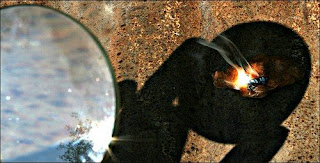Burn-out, Off the derech, Timtum HaLev, observabots, general lack of feeling while performing mitzvos. Call it what you will, but recently it’s been a topic among many bloggers. Why? I’d venture to say that it is because most people are worried about someone they know or even themselves. To be on fire, excited, and passionate about anything all the time isn’t easy.
If inclined, I’m listing a few links for online reading as well as two mp3 shiurim that might help anyone. I’ve, personally, found them useful.
Reading
Adults at Risk: by R Mordechai Becher and Rabbi Chanan (Antony) Gordon- A well written article that address this issues and offers suggestions
Burn-Out: by The Ner LeElef Institute- This document was written for the “kiruv profession”, but don’t let that stop you from reading…with an open mind and heart
Inspiration and Disappointment: from LIVING INSPIRED by Rabbi Akiva Tatz- If you haven’t read this, he explains why we need to go through a period of excitement and then hit the bumpy roadListening
Listening
Getting High, Staying High: Rabbi Akiva Tatz (fourth shiur on the list)- This is the mp3 shiur of the same concepts found in the above link
Loving Yiddishkeit: by Rabbi Shaya Cohen (third shiur on the list)- While geared toward parents, the information, insights, and advice are hands-on and can be applied for anyone
To be continued…




